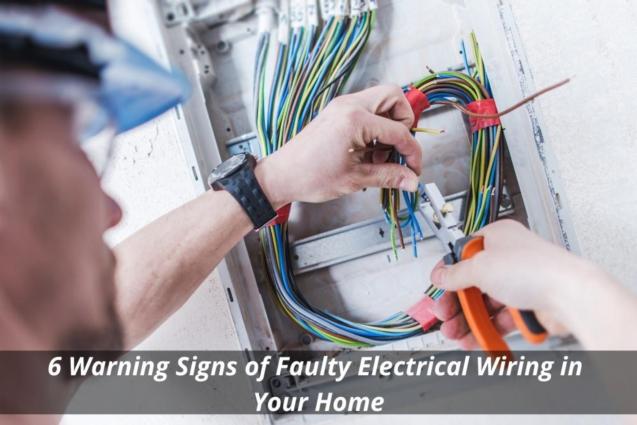
Difference Between Commercial And Level 2 Electricians
There are two types of electricians – level 2 and commercial electricians. If you want to get into electrical contracting, then knowing the difference between these two types of electricians is essential.
This post aims to provide information about the differences between level 2 and commercial electricians. This article provides some important information regarding being a professional electrician, including who should become a qualified electrician, the qualifications and licensing required, training options, job outlook, and much more.
Several points distinguish level 2 from commercial electricians. They include specialization, certification, experience, and licensing requirements.
Before we jump right in, let’s clarify what makes someone qualified as a level 2 or commercial electrician.
A level 2 electrician must have one or more years of apprenticeship under his belt and have obtained the appropriate licenses.
To become a “commercial” electrician, you need to obtain at least two years of specialised training with a license for commercial work, such as:
- Electrical safety
- Residential wiring
- Commercial wiring
- Fire alarm system design
- Building Construction
- Industrial Construction
- Elevator installation
- Solar panel installation
What does a level 2 electrician do?
Level 2 electricians are responsible for doing more dangerous jobs than ordinary electricians. They are more skilled and are required to comply with strict NSW rules and regulations when working. They must be closely supervised to ensure they follow safe practices while performing their duties. They also have to pass regular tests to prove that they know everything there is to know about electricity.
A level 2 electrician can either specialize in residential construction or electrical maintenance. He may also choose to take additional courses to specialize further. The most common specializations are listed below.
Residential Electrical Contractor
These specialist contractors focus primarily on building homes. They install all electrical equipment necessary for power points and lights installed, as well as other appliances like refrigerators, stoves, and washers/dryers.
Electrical Maintenance Technician
These specialists deal primarily with fixing things related to electrical systems. For instance, he could fix an LED lighting switch, repair broken wires, replace faulty outlets, or troubleshoot a problem with a ceiling fan.
Electrical Installation Specialist
He specializes in installing new devices like ceiling fans, lights, speakers, computers, phones, televisions, etc.
These are just examples of the many different specializations available for electricians. There are also some levels that fall somewhere between commercial and residential.
What does a commercial electrician do?
Commercial electricians perform all kinds of electrical tasks throughout Australia, but mostly in businesses, hospitals, shopping centres, apartment buildings, schools, hotels, office buildings, residential homes, etc.
They may specialize in specific equipment, like ceiling fans or air conditioning units, or in electrical systems repair, renovation, maintenance, or new construction projects.
When it comes to commercial electricians, they can learn through formal education programs or by taking online courses. They also often take continuing education classes every year, so they stay up to date with industry standards and best practices.
The majority of commercial electricians are classified as journeymen because of their high quality level of expertise. Their primary responsibility involves installing and repairing industrial and commercial electrical systems, which usually includes the following:
- Electricity distribution (generating stations)
- Indoor or Outdoor Lighting control ( LED lighting fixtures)
- Powerpoint Installation & distribution (Powerpoint repairs, poles and lines)
- Circuit breakers
- Transformers
- Insulation materials
- Fire detection devices
- Cable management
- Power Surges protection
- Air conditioner installation
- Motor controls
- Automation systems
Electrical services include installing, repairing, maintaining, testing, and upgrading electrical wiring and components, including circuit breaker panels, fuse boxes, smoke detectors, telephone jacks, and computer network cabling. It’s not uncommon for an electrical contractor to oversee the entire design and build process of any given project.
An emergency electrician Sydney Wide usually called from job sites when there is an emergency involving electricity. Some companies work 24 hours availability and require these workers to have experience working with high-voltage electricity, while others don’t.
Electricity is important to modern life whether we realize it or not. From our home entertainment centres to our cars and trucks, from medical technology to smart grids, electricity has become an integral part of everyday life and commerce.
When someone needs to find a licensed electrician to install safety switches or smoke alarms and other electrical jobs, it is highly recommended to check with friends, family members, co-workers, neighbours, and other contacts. If you cannot think of anyone who might recommend a local electrician, then try doing a quick search for “electricians near me” on the internet.
In order to get good results, you need to know what you are looking for. Also remember that not only do you want to make sure your electrician has experience in your area, but you also want to make sure that the person you select is properly licensed.
After having identified your potential candidates, it is time to start contacting them and requesting references. You will need to ask for at least three written references, but ideally five. This way, you can thoroughly review each reference before making your decision.



